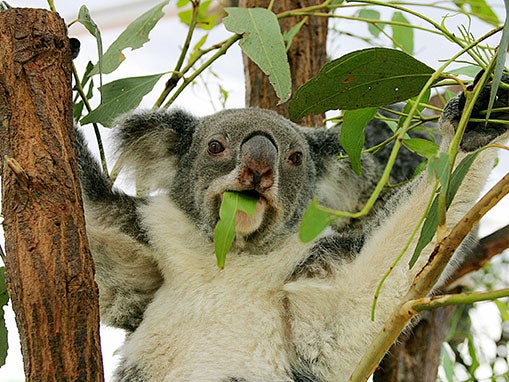Female koalas will be given contraceptive implants as many are starving to death
Dead koalas who ran out of food been found in Cape Otway

Your support helps us to tell the story
From reproductive rights to climate change to Big Tech, The Independent is on the ground when the story is developing. Whether it's investigating the financials of Elon Musk's pro-Trump PAC or producing our latest documentary, 'The A Word', which shines a light on the American women fighting for reproductive rights, we know how important it is to parse out the facts from the messaging.
At such a critical moment in US history, we need reporters on the ground. Your donation allows us to keep sending journalists to speak to both sides of the story.
The Independent is trusted by Americans across the entire political spectrum. And unlike many other quality news outlets, we choose not to lock Americans out of our reporting and analysis with paywalls. We believe quality journalism should be available to everyone, paid for by those who can afford it.
Your support makes all the difference.Female koala bears in Australia will be given birth control because soaring numbers of the animals are causing them to starve.
A lack of food has led to officers reportedly finding dead koalas in the forest.
The female bears at Cape Otway, Victoria, will receive the contraceptive implant in an effort to control their population.
This week, officers will begin catching and assessing the health of koalas in the region, according to ABC.
There are fears that a cull of the animal could take place. It follows a secret cull of around 700 koalas that took place between 2013 and 2014, which provoked international criticism.
Mandy Watson, a spokesperson for the Department of Environment, Land, Water and Planning told Reuters that koalas would be captured and assessed by vets. Any found to be in poor condition or suffering would be “humanely [euphanised] while it’s under sedation”.
The population spike, she told ABC, meant manna gum trees were being destroyed.
“It’s still looking pretty poor, there was some leaf recovery post the crash, but overall things are looking pretty poor and koala numbers are still high."
Dr Jack Pascoe for the Conservation Ecology Centre said that an imbalance in the ecosystem was leading to the “catastrophe”.
“Trees that should have been regenerating and growing leaves simply could not recover. Seedlings did not emerge from the ground. Koalas starved,” he said.
Join our commenting forum
Join thought-provoking conversations, follow other Independent readers and see their replies
Comments